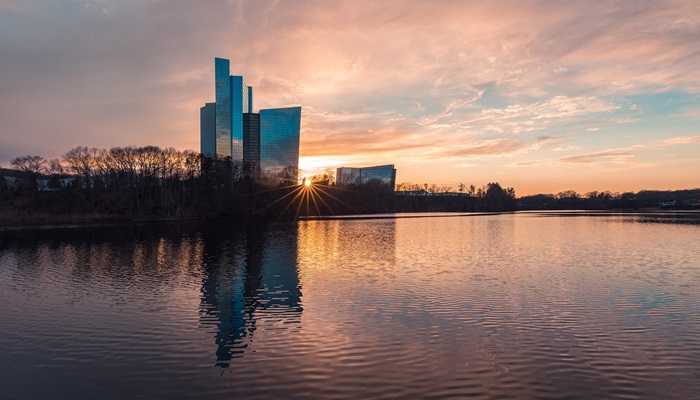In individual letters to the Connecticut state legislature, the Mohegan Tribal Gaming Authority and Mashantucket Pequot Tribal Nation contend that should the Supreme Court rule in favor of a New Jersey challenge to overturn the existing Professional and Amateur Sports Protection Act (PASPA) and legalize sports wagering in the U.S., they should have exclusive rights to conduct the lucrative activity within the state.
Separate letters sent by the Mohegan and Mashantucket Pequot tribes to leaders of the legislature on Friday and Saturday reportedly stated that the same revenue sharing agreements that provide the state with a 25% take of video slot machine revenues from the tribe’s respective casinos every month likewise entitles them to exclusivity on sports wagering.
In the Mohegan’s correspondence to House Speaker Joe Aresimowicz, D-Berlin the tribe reportedly cites a legal opinion (pdf) dated April 17 from Connecticut Attorney General George Jepsen advising “the legislature to carefully consider a number of factors before legalizing sports wagering,” as reported by the Hartford Courant.
Also noted by the Mohegans in the letter was the statement from Jepsen that “The Tribes may argue, however, that a state law permitting sports wagering in Connecticut would violate the exclusivity provisions of the MOUs” (revenue-sharing agreements).
The Hartford Courant reports that at a Tuesday morning news briefing, Aresimowicz and House Majority Leader Matthew Ritter said that it was not likely that sports betting would be handed over to the tribes.
Aresimowicz, along with AG Jepsen and others said they do not believe that the casinos can stop making the revenue sharing payments to the state should they allow sports wagering to occur beyond the casino venues, according to the newspaper.
“I rather have conversations than say, ‘OK, you stop paying us the money for the compact and then we’ll tell you, you can’t have slot machines at all in the state,” Aresimowicz reportedly said. “Nobody wants to do that. The tribes are going to be part of any type of gambling we do in the state of Connecticut.”
However, Connecticut House Majority leader Matthew Ritter did not reportedly share that sentiment, having dismissed the argument by the Mohegan and Mashantucket Pequot tribes, saying, “It was never contemplated and the specific words were never used. Here we are 26 years later and they’re raising it for the first time.”
According to the American Gaming Association (AGA) at least $150 billion is illegally bet on sports every year due largely in part to PAPSA’a failure to prohibit single-game sports betting. While PASPA does not ban sports gambling nationwide as a matter of federal law, the act instead says the states, with the exception of those already grandfathered in (Delaware, Montana, Nevada and Oregon), cannot permit it.
Currently, 14 states have introduced legislation that would legalize sportsbetting and five states have passed sportsbetting legislation. Only Nevada offers full-scale legalized sportsbetting.



